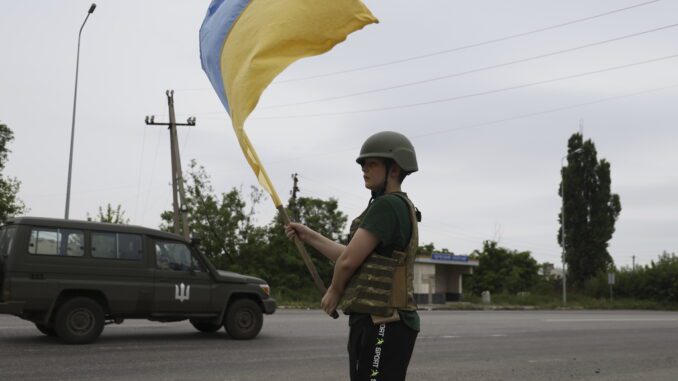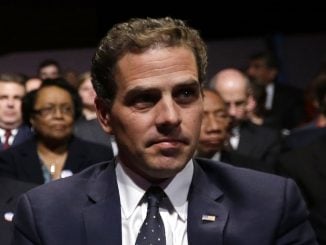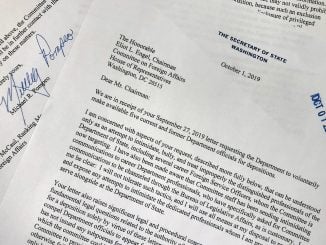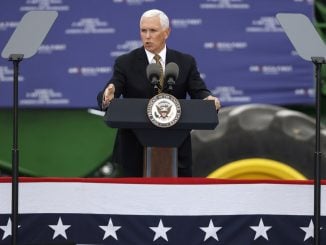
Samuel Huntington got Ukraine wrong.
That’s what a casual reader of “The Clash of Civilizations?” — published in Foreign Affairs 30 years ago this summer — might think.
Huntington was at the peak of his career as a political science professor and director of the John M. Olin Institute for Strategic Studies at Harvard University when he wrote “the fault lines between civilizations will be the battle lines of the future.”
The Cold War with the Soviet Union was over. American troops easily evicted Saddam Hussein from Kuwait two years earlier. This was meant to be a golden age — a new world order, as President George H.W. Bush called it, even “the end of history.”
But Huntington knew perpetual peace had not arrived. Nor was foreign policy about to become mere police work.
The Islamist atrocities of 9/11 confirmed his insights. The “War on Terror” was really a war between the West and another civilization’s most militant manifestation. The Bataclan Theater in Paris and the London Underground were as much a battlefield in this war as the caves of Tora Bora or the deserts of Iraq.
Yet Huntington had his detractors, who claimed civilization itself was a racist term and unscientific.
More recently, some have called out Huntington’s 1993 assertion that “If civilization is what counts … the likelihood of violence between Ukrainians and Russians should be low.”
Ukraine sits atop a fault line between the West and what Huntington called Orthodox civilization.
He expected no earthquakes, however, because Ukraine and Russia “are two Slavic, primarily Orthodox peoples who have had close relationships with each other for centuries.”
Did he fail to foresee Putin? Not exactly.
American leaders feared the worst from the breakup of the Soviet Union in 1991. President Bush warned Ukrainians, in particular, against pursuing immediate independence from Moscow.
In remarks penned by Condoleezza Rice — later dubbed the “Chicken Kiev” speech by columnist William Safire — Bush condemned “suicidal nationalism” and appeared to make the case that the Soviet Union was good for free trade among its member republics.
A neoliberal, anti-populist argument for the Soviet empire — the Ukrainians, bravely and sensibly, ignored Bush and declared national independence. That wasn’t tantamount to a declaration of war with Moscow.
Huntington was right: For nearly a quarter-century, the remarkable thing wasn’t the tensions between Ukraine and Russia but that the friction didn’t ignite into war. Yet Huntington was not naive about the direction Russia was likely to choose in the future. He defined Russia as the most important “torn country,” forced to decide which civilization it would follow. “The question of whether Russia is part of the West or the leader of a distinct Slavic-Orthodox civilization has been a recurring one in Russian history,” he wrote. The demise of the USSR raised it again.
What’s happened in the 30 years since Huntington wrote “The Clash of Civilizations?” is that more and more torn countries have made up their minds. Ukraine, torn between Western and Orthodox civilization, chose the West — and Putin invaded. Russia, civilizationally invested on Serbia’s side in the Balkan conflicts of the 1990s, turned away from the West as NATO intervened in support of Muslims in Bosnia and Kosovo.
Other nations have also made civilizational choices.
Turkey under President Recep Erdogan is still a member of NATO but has rejected the Westernizing secularism of Kemal Ataturk in favor of stronger commitments to Islam. India, likewise, has been moving away from the Western model of non-sectarian liberal democracy toward a reassertion of Hindu civilizational roots.
Huntington’s former student and rival prognosticator of the post-Cold War world, Francis Fukuyama, envisioned a future in which liberal democracy would inexorably spread.
In the three decades since Huntington challenged Fukuyama’s “end of history” thesis, the older scholar has been proved right. The War on Terror was a tragic confirmation. America fought for 20 years to bring a semblance of liberalism and democracy to Afghanistan, only for the Taliban to retake power the minute our forces left. The outcome is hard to explain in Fukuyama’s terms, but all too predictable according to Huntington. We embarked on nation-building when the task confronting us was really that of changing a civilization. It never stood a chance.
The one big thing missing from Huntington’s theory is supplied by the last book he wrote before his death in 2008. In “Who Are We? The Challenges to America’s National Identity,” published in 2004, Huntington recognized the clash of civilizations was coming home. The “culture war” is a clash of civilizations, and America is now a torn country.
Are we still Western, or are we woke?
Until we make that choice, the clash of civilizations will be fought as much within our own institutions — and souls — as on the borders of Europe or across the Taiwan Strait.
Daniel McCarthy is the editor of Modern Age: A Conservative Review.



